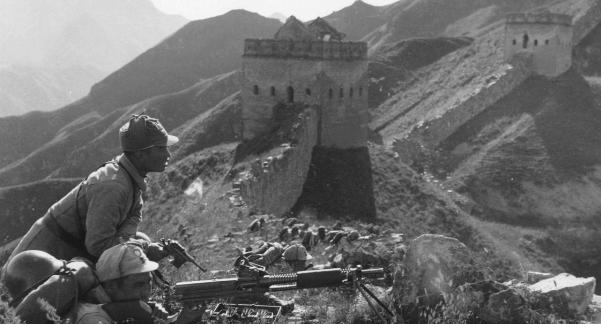Wu Jiangping was admitted to the Central Guoshu Museum in Nanjing in 1933. In September 1936, he joined the military training regiment of the 29th Army, during which he joined the Chinese National Liberation Vanguard. In 938, he was sent to Yan'an to study at the Anti-Japanese War, and then to the Jin-Cha-Ji Border Region behind enemy lines to participate in the War of Resistance. He joined the Party in Yan'an in 1943. After the founding of New China, he worked in the State Sports Commission. 5-year-old Xi Wu 20-year-old to fight the Japanese team, Wu Jiangping's hometown in Pu County, Shandong Province, CrossPo South West Niuqiao Village, because of the proximity to shuihu Liangshan Po, by the wind of shangwu, 5 years old began to practice martial arts, enlightenment master Chen Zaixian requirements are very strict, every day hard to press legs, punching, forks, daily diligence, never stopping.

When he was 15 years old, Wu Jiangping was studying in Jinan and personally experienced the Wanton Aggression of Japanese Imperialism in Jinan and the massacre of our Chinese brothers and sisters, that is, the "May 3 massacre"; what was even more cruel was to watch his friends die one by one under the guns of the Japanese, and his heart was full of hatred for the invaders. In 1933, he went to Nanjing to test pilots but fell out of the list because of color blindness, so Wu Jiangping took Master Dou Laigeng's handwritten recommendation letter to the Central Guoshu Museum to meet the curator Zhang Zhijiang and the education director Yang Songshan, and after studying here for two years, he bumped into the National Guoshu Sports College.
In 1936, after the summer vacation, Wu Jiangping and his brother-in-law Duan Junyi left home together, on the way he said that a young man with lofty ideals should throw himself into the tide of anti-Japanese resistance, and advised Wu Jiangping to "fight the Japanese and go to whomever they want". Therefore, Wu Jiangping decided to defect to the army, returned to the school to request withdrawal from school without approval, simply did not quit, went to Beiping in the winter, passed the examination and became a cadet of the Military Training Corps of the Twenty-ninth Army.
After joining the regiment, you must first receive three months of recruit training and three months of infantry training, and life is tense and hard. In order to cultivate strict organizational discipline, the instructors are not even close to people, such as someone who wants to go to the toilet, after getting approval, they have to run, there are horizontal bars and parallel bars on the road, and the prescribed actions must be completed on the way back and forth, and if they can't be completed, they can't even go to the toilet.
Soon on the day of the Lugou Bridge Incident, the invaders fired their first shots without reason and provocation, and General Song Zheyuan, commander of the Twenty-ninth Army, ordered a resolute response to the battle. At that time, The Wu Jiangping Military Training Regiment and some officers and men of the Twenty-ninth Army were stationed in Nanyuan, which was the southern gate of Beiping, and after learning the news, everyone was indignant and hoped to go to war immediately, just at this time the military department issued a pre-war order to let Wu Jiangping be prepared to repel the invading enemy at any time. In this way, Wu Jiangping began his own anti-Japanese road.